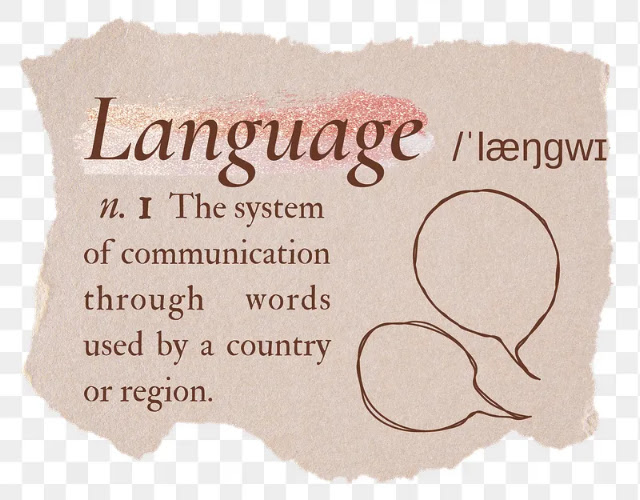I've talked before about the power of words, but I think it's something that is important enough to talk about again. Language is an ever-evolving thing, and I think right now we are seeing a huge change in how we approach language (with the topic of pronouns).
Words are created things, at some point in time, all words were 'made up'. And it's not like we aren't used to the concept of adding new words to our vocabulary, because slang is a very commonly accepted concept, and while we may view slang to be casual language (not suited for 'official' type settings), we still acknowledge them as words.
Where things get a bit tricky is when the same word has different meanings to different groups. We saw this with Wicca, where for a long time Wicca was seen by some as a specific path (British Traditional Wicca or BTW), while many people weren't aware of that meaning and came to know Wicca as the catchall for generic witchy Paganism (what we might now consider Neo-Wicca). Now, one might definitely argue that BTW is the 'true' meaning of the name, but if you have a whole generation of people who grew up thinking what they did is Wicca (because that is what a lot of 101 books and articles called it), are they really wrong in calling their path Wiccan (since that is what they were taught it was called)?
Now, take that same issue, but add in a few more generations and you start to see how this can be a complicated issue. I see similar issues with naming when it comes to food. Think about the divided opinions on what a biscuit is (American versus British). Both countries have been calling their food a biscuit forever, and both versions are dramatically different. Neither is wrong, in this case it comes down to context.
To further complicate the issue, sometimes people pervert the meaning of a thing, so it can no longer be used for it's original purpose. Almost every slur or curse word follows this path. At some point down the line, a word became a negative name for some marginalized group (or in the case of curse words, a slightly taboo word is shifted from it's original meaning to a general exclamation of frustration or outrage). The thing is that once a meaning has shifted, it's almost impossible to reclaim the original meaning (and even if you use it in proper context, it's still flavored by the negative slur meaning).
And finally, sometimes names are linked to other names in a way to other people. There is a long history of associating marginalized people with unsavory mythic creatures (who typically are considered 'evil') as a way for the people in power to demonstrate the negative characteristics of the people they wish to other. This has come up recently with goblins, both within the Harry Potter world and in Dungeons and Dragons.
The thing is that, to the best of my knowledge, folklore about goblins existed before the connection to any specific race, and in fact goblin lore is quite varied and what characteristics goblins have differs greatly depending on where in the world you are. It is only a few specific areas/times that have linked goblins to a particular people, and I honestly had never thought of goblins as 'representing' any particular race...until someone pointed it out.
And it's worth pointing out that these types of negative associations only work if you agree to the racial stereotypes about the people involved! Sure many fantasy goblins have distinct physical features and some have a love of money....but if you don't stereotype a whole race of (actual) people, then you won't see goblins as a way of representing those people.
In a similar line, going back to gender names for a minute, I am starting to see more and more people finding alternative language to the typically gendered way we approach things in the witchy realm. There are SO many things that we needlessly gender. And I do understand that, for a very long time, gendered thought (especially when it came to personality types) was the standard. Men were masculine and that meant tough and rough and active and 'good', while women were feminine so they were dainty and passive and 'evil' (yes, most binary systems equate masculine with positive and feminine with negative).
It's one of those things that has been done forever...but that doesn't mean we need to continue it! Even just taking the gender part out and talking about things in terms of active/passive, nurturing/protecting, external/internal....these allow people to step outside of their stereotype (and trust me if you want me to be a stereotypical 'female'...you are going to be disappointed!).
Words will always have power, but that is a power we can harness....and most importantly it's a power we don't have to fall prey to. Just because someone wants to use a word in a way that hurts or oppresses other people, doesn't mean we need to buy into that. And just because a word has meant something 'for a long time' doesn't mean we can't change that meaning. And multiple groups can use the same word to mean very different things (context is important!). This is why it is so vital to be open to conversations about what things mean and to not cling to something just because it's what we know. Language evolves, and so should we.

No comments:
Post a Comment